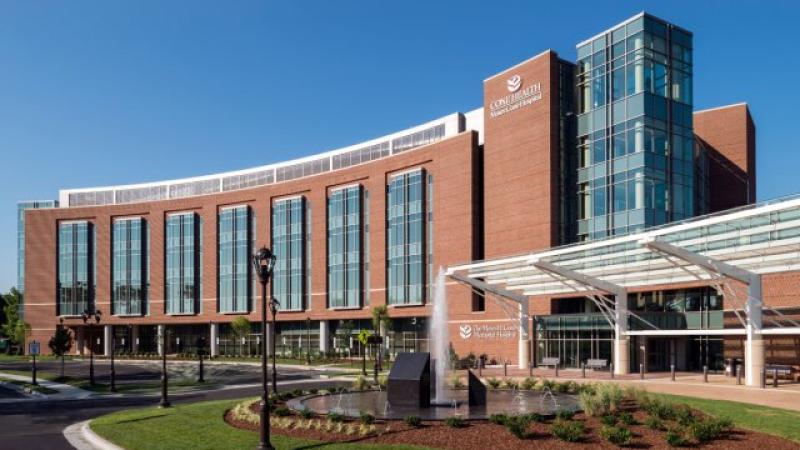
One Year In: A Look at Duke Surgery's Resident Training Partnership with Central Carolina Surgery
Photo above: Moses H. Cone Memorial Hospital in Greensboro, NC. Duke Surgery residents, while completing training rotations at Central Carolina Surgery, operate in Cone Hospital.
In October 2021, Duke Surgery announced a new partnership with Central Carolina Surgery (CCS), a surgical practice serving the Greensboro, NC and greater Triad area, with a goal of providing General Surgery residents valuable additional experience performing general surgery cases.
One year into the merger, and with CCS physicians officially faculty in the Duke Department of Surgery, take a look into the partnership's impact on Duke residents refining their surgical skills, how the attending surgeons at CCS have evolved as teachers, and how Duke and CCS continue a mutually beneficial relationship in providing world-class surgical care to the Triad.
Central Carolina Surgery (CCS), founded in 1999, is a general surgery practice based in Greensboro, North Carolina. With over 20 surgeons, CCS is one of the largest independent surgical practices in the state and regions.
Matthew Tsuei, MD, FACS, has been with Central Carolina Surgery since 2006, and is currently president of the practice. In 2019, Dr. Tsuei was approached by Duke Surgery with the unique proposition of joining resources to continue serving the greater Triad area, expanding access for patients across the state, and allowing Duke residents to hone their surgical skills by working in tandem with a large, established independent practice.
How it Works
Each month, one resident from the Duke General Surgery Residency Program completes their training at CCS. While there, the residents focus solely on performing as many general surgical cases as possible, caring for patients in the community outside of the immediate Durham area, all while experiencing and learning about how a private surgical practice is run.
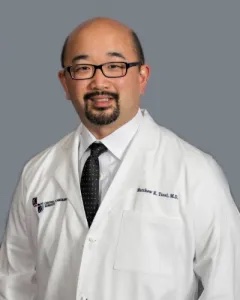
Clinical Associate, Duke Department of Surgery
President, Central Carolina Surgery
Many of the cases performed by residents at CCS are more routine, less complex, "bread-and-butter" cases such as hernia repairs, gallbladder cases, excisions, and some oncologic surgical procedures relating to breast cancer and melanoma, to name a few.
Because only one resident is training at CCS at a given time, a major benefit of the program is that the trainees receive one-on-one time with the attending surgeons and have a range of cases to which they can be assigned.
"Each week, I set up the resident's schedule for the next week, and I select which cases they will work on to try to give them as many cases as possible," says Dr. Tsuei. "The residents average about 20 cases per week; most end up completing about 80 cases for the month that they are with us."
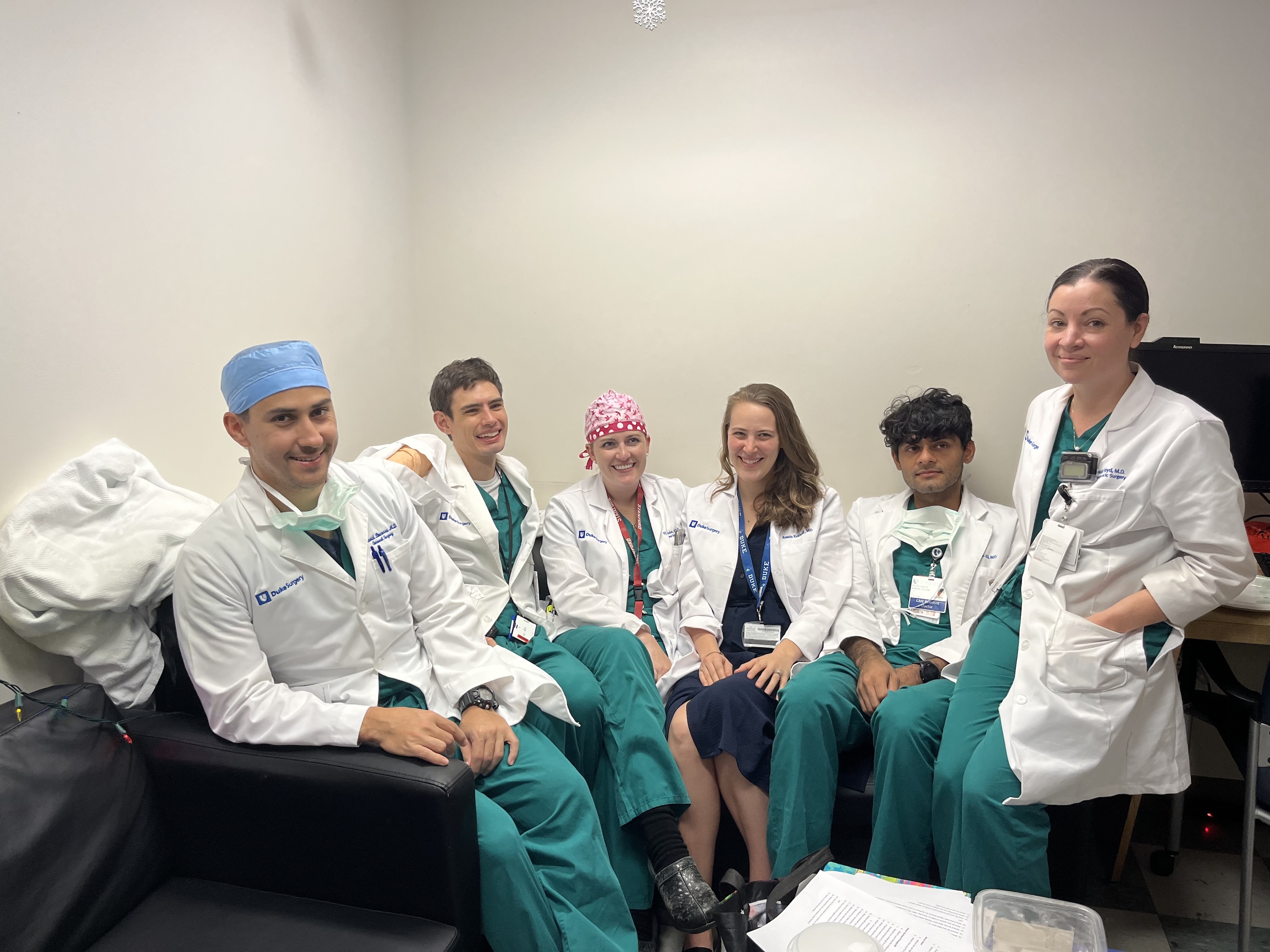
Repetition Meets Innovation
David Becerra, MD, a current Chief Resident in the General Surgery Residency Program, completed his training at CCS from November to December 2021. In that time, Dr. Becerra's case load totaled 120 cases.
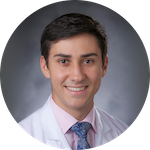
Chief Resident, General Surgery Residency Program
Dr. Becerra will graduate from the Duke General Surgery Residency and enter into a military contract with the US Navy as a general surgeon. For him, his time training with CCS provided more direct understanding of what it means to be a community general surgeon and to serve both the broader community and the military.
"Training with Central Carolina Surgery really gave me the repetitions I needed in these general surgery cases to be a safe and efficient surgeon going forward," says Dr. Becerra. "A common misconception in medicine is that there's only one way to do things, where in reality the training is very broad and very diverse. The common cases can be varied and training at CCS helped me see a lot of different approaches for some of these cases."
Austin Eckhoff, MD, PGY-3, completed her rotation at CCS in August 2022. "One of the great things about CCS is how many 'bread-and-butter' general surgery cases there are," says Dr. Eckhoff. "I got a chance to repeatedly practice laparoscopic skills in cases such as laparoscopic cholecystectomies and would partake in 3-5 cases daily. This let me really hone my skills under the guidance of expert surgeons and learn from a variety of surgeons who all approached the case a little differently, giving me many surgical approaches and skills in my repertoire."
Meeting the Patients Where They Are
A primary goal of the residency training partnership is also to provide Duke Surgery residents with a working understanding of how community surgical practices work, and how they serve the broader community population. Residents conduct their casework primarily at Moses H. Cone Memorial Hospital in Greensboro, the flagship medical center of Cone Health.
"The Greensboro rotation gives us an opportunity to not just talk about cost of care, and the cost to the patient, "says Dr. Becerra, "but to really experience how it appreciably changes practice, how it changes an operation, the conduct of an operation, the equipment used. For our graduates, it's better to get the experience early of seeing how to efficiently run a practice."
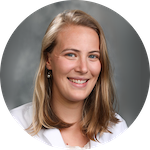
PGY-3, General Surgery Residency Program
The residents recognize the unique opportunity that this provides. "At Duke University Hospital, we see how an academic center is run but often miss how much of the country practices surgery in a community setting," says Dr. Eckhoff. "I found it very valuable to see a community practice's patient population, and what skills and demands are in community practice."
Through their rotation at CCS, Duke residents also experience and gain a deeper understanding of what aspects of care are most important to patients in more rural, less metropolitan areas. While training at Duke, residents see patients that come from all corners of the state and country in need of surgical care. However, oftentimes patients do not have the desire or ability to travel to Durham. That is where independent practices like CCS come into play.
“Something I took away from the experience training at CCS is seeing that it all really comes down to what patients want,” says Dr. Becerra. “Patients want to be treated near where they live, and a huge population of the country does not live near a massive tertiary care center, like Duke. These patients choose to receive their surgical care in Greensboro, which really showed me that what’s most important to patients is to be where they are comfortable, near their families and support systems, and to receive good surgical care outside of the major hospital systems in Durham or Charlotte or Wake Forest.”
"Patients want to be treated near where they live, and a huge population of the country does not live near a massive tertiary care center like Duke."
-David Becerra, MD, General Surgery Resident
Efficient Care in High-Volume Settings
Many patients are also financially restricted from traveling to receive care, and therefore rely on community practices like Central Carolina Surgery. CCS is one of the highest-volume independent surgical practices in the state of North Carolina, serving patients who often do not have the resources to receive care outside of their immediate residence.
Dr. Tsuei, a US military veteran, knew that he wanted to come back to North Carolina as his time in the Air Force came to a close. He returned to North Carolina with an intention of providing patients in Greensboro and the Triad with timely access to care. “Just because someone has health insurance, it doesn’t necessarily mean they have access to good healthcare,” he explains. “We try to maintain efficiency in our practice so that we can allow as many patients as possible to have access to our surgeons and the care we provide."
Dr. Eckhoff echoes those sentiments. "CCS's practice has a strong focus on efficiency, personalized patient care, and providing expansive surgical options to their community," she says. "It was great to see how a non-academic practice runs and how different surgeons split hours and responsibilities."
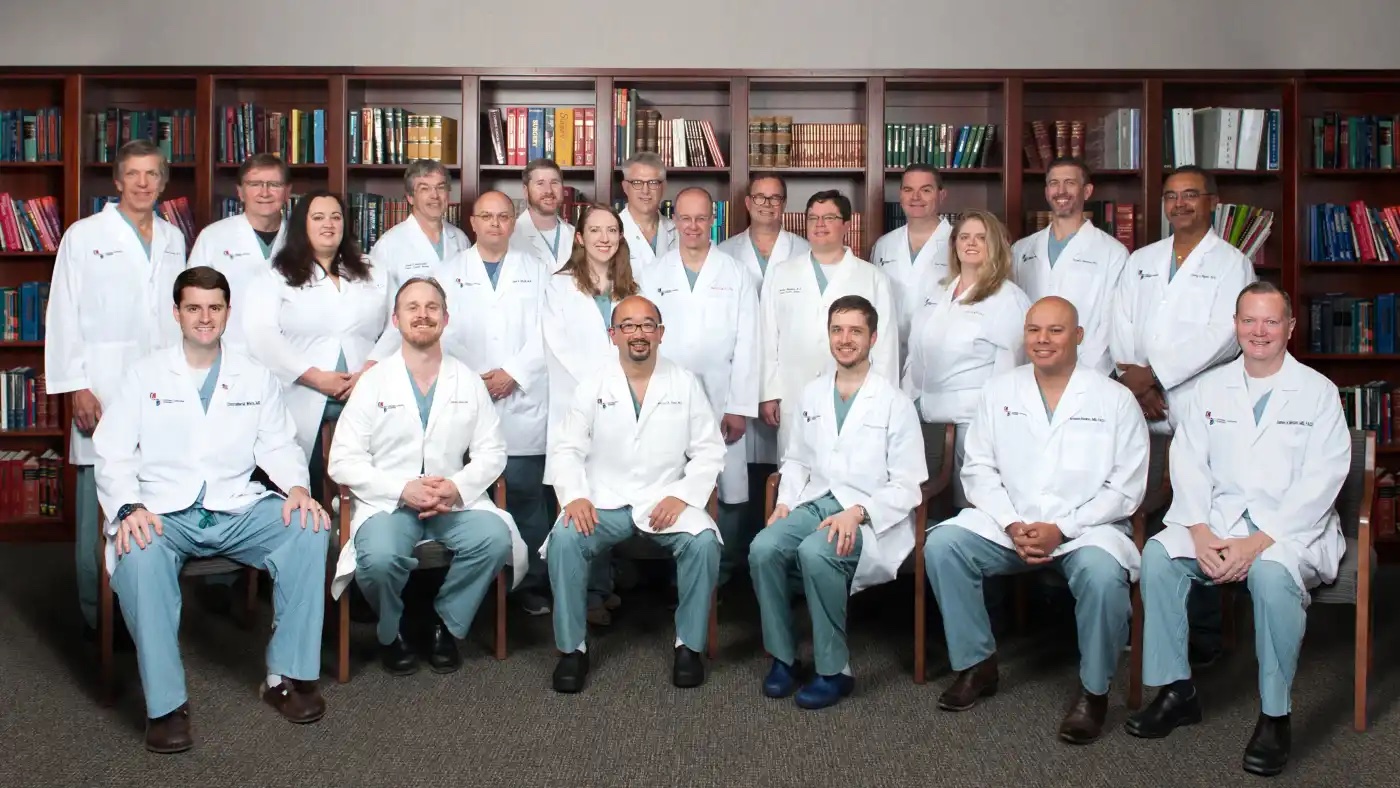
A New Breed of Academic Surgeons
There are multiple beneficiaries of the partnership between Duke and CCS. Outside of the Duke surgical residents expanding their training opportunities, the surgeons at CCS are also able to refine their skills as teachers and mentors, often for the first time. Before partnering with Duke Surgery, most of the CCS surgeons had never been involved in academic surgery outside of their own training experiences.
"None of us at CCS were in academics before this, but we have really enjoyed working with the residents," says Dr. Tsuei. "We're motivated by young surgeons."
The motivation and enthusiasm to both teach and learn is evident to the Duke residents that come through the CCS rotation. "The surgeons at CCS were amazing teachers," says Dr. Eckhoff, "both with patience to let residents learn in the operating room and with the ability to instruct and guide for improvement."
Most of the surgeons at CCS trained at large academic institutions themselves, and the residents appreciate the unique experience and knowledge they provide. "They remember being in our shoes at one point," says Dr. Becerra, "and I can't even say the number of 'When I was in Residency' stories I heard that they were just excited to share with us."
What's Next?
With a year under their belts, Dr. Tsuei and Duke education leadership are looking ahead toward continued improvements to the residency training partnership. The first step in that process, though, involved the CCS team officially becoming faculty at Duke. On July 1, 2022, Dr. Tsuei and his colleagues at CCS were appointed as clinical associates in the Department of Surgery, and will be among the first faculty in the new Division of Community Surgery, which will officially be formed by Summer 2023.
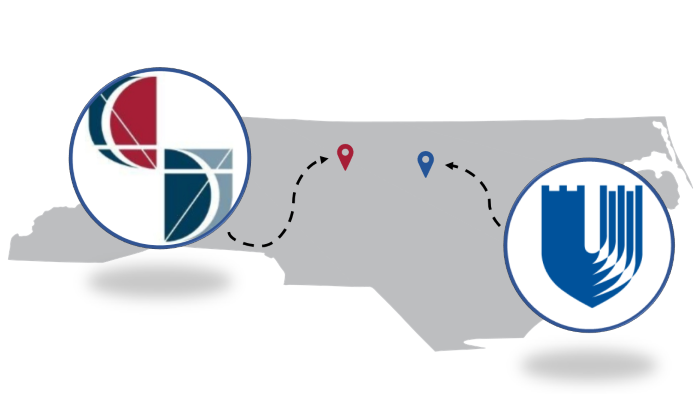
"We do 6,000-6,500 cases a year in our practice," says Dr. Tsuei, "and all of that clinical data is kind of untapped potential. So that could be another part of the partnership down the road, that we look at ways to examine and utilize that clinical data that we have access to."
There are also refinements to be made to the training partnership itself. Among them is ensuring that residents rotating with CCS are set up for success and are as prepared as possible for the high-volume experience.
"I think we've seen that while all of the residents who have come through CCS have been capable and successful, we have also seen that it makes sense for residents to complete their rotations here during their senior residency years because at that point, they have been through both their research and clinical years and have a bit more experience and confidence in the operating room," says Dr. Tsuei.
Regardless of when residents enter their rotation, Dr. Becerra's advice to residents who have yet to complete their training at CCS is simple: "Do as many cases as possible. There are so many cases that we can learn from. There is no better place to become efficient in your operating skills than at CCS."♦
Learn more about the Duke General Surgery Residency Program.
Learn more about Central Carolina Surgery.